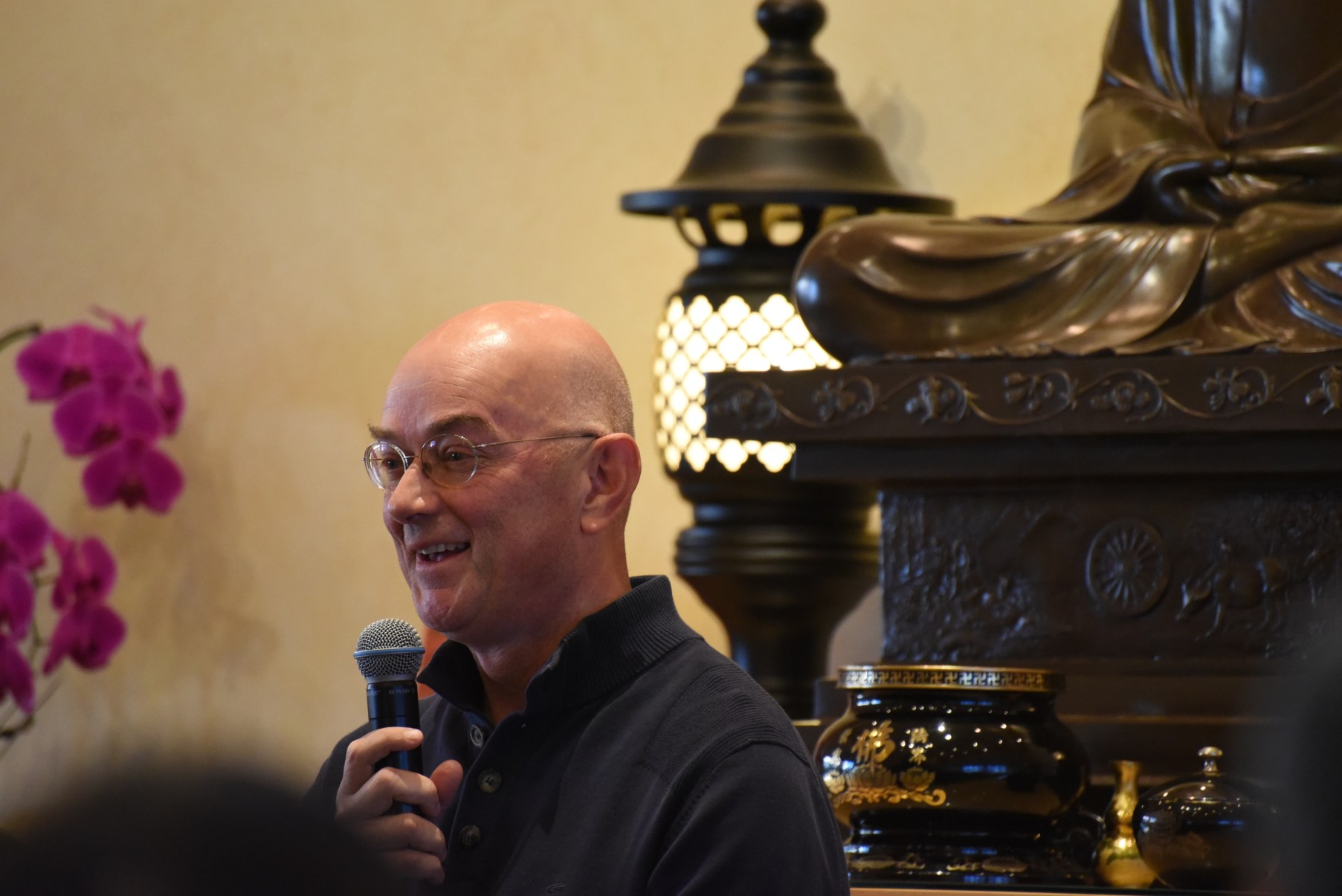Chan in Everyday Life

Presented by Zarko Andreicevic on Nov. 21, 2015
A summary of the talk
“Chan” and “daily life” are seemingly two different concepts to most people. How do we relate the two? Is it possible to have Chan in our daily life? How can we benefit from having Chan in our daily lives?
Daily life is comprised of difficulties, conflicts and hardships – Suffering. On the other hand, the practice of Chan leads us to freedom from suffering.
There are different classifications of Chan practice:
Formal practice, informal practice, regular daily practice, intensive practice, individual or group practice. From the perspective of Chan, life and practice are one in the same. Chan is applicable to our everyday lives.
An important characteristic of Chan tradition is that everything we do can be turned into the practice of Chan; it can be easily applied to all aspects of daily life.
.jpg)
The practice of Chan is actually difficult to maintain when you leave an environment devoted to religious practices, such as Dharrma Drum Mountain. This can be explained by the following factors:
1. Being rushed – We are constantly having a shortage of time
2. Tension – Stress caused by being rushed
3. Superficiality – Not allowing sufficient time to understand or come in contact with situations
4. Alienation – Feeling alienated from our physical bodies, others and the nature that surrounds us
5. Dissatisfaction – A result of the above five factors
The basic and very important principle of Chan practice is to be in the “Present Moment.” Leave your thoughts of the past and future and one's mind becomes liberated, free from negative emotions, self-centeredness. You will gain stability which will allow you to see clearer and become more deeply aware of phenomenon around us.
By utilizing the methods from the practice of Chan, the mind can be trained to be in the Present Moment, one method includes Relaxation. Simply slow down and you will find that there is suddenly time for everything. You will experience a more relaxed body and mind. When the mind becomes relaxed, it becomes more stable transforming superficiality into deep relations with other people and your surroundings.
We affect our surroundings by our actions, creating a “Web of relationships”. We become supportive of ourselves and others in the web. This web contains “Supportive conditions” which provide good foundation for the practice of Chan.
The ultimate objective of Chan is to attain Wisdom which in turn manifests Compassion. Only through wisdom can we alleviate suffering. Practicing Chan establishes inner harmony and helps you find joy and happiness. Share this practice with others and they will in turn find their own joy and happiness.
(Recorded by Daphne Tsai)